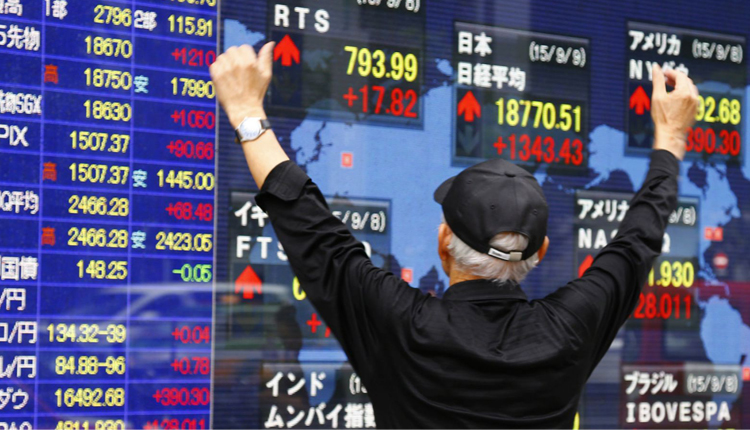Asian markets were mixed in Thursday afternoon trade amid reports of a potential delay in the signing of a U.S.-China trade deal.
Mainland Chinese stocks were mixed by the afternoon, with the Shanghai composite down 0.3 percent while the Shenzhen component rose 0.1 percent. The Shenzhen composite gained 0.191 percent.
Hong Kong’s Hang Seng index slipped 0.34 percent as shares of Chinese tech giant Tencent dropped 1.92 percent.
In Japan, the Nikkei 225 was slightly lower while the Topix index was largely flat. Shares of Softbank Group fell 2.27 percent after dropping more than 3 percent earlier. The moves came after the Japanese conglomerate announced its first quarterly loss in 14 years on Wednesday.
Meanwhile, automaker Toyota saw its stock slip around 0.2 percent ahead of its quarterly earnings report on Thursday.
South Korea’s Kospi slipped 0.13 percent , as shares of industry heavyweight Samsung Electronics shed 1.13 percent.
Australia’s S&P/ASX 200 advanced 0.93 percent. Earlier, the Australian Bureau of Statistics reported a 9 percent increase in the seasonally adjusted balance on goods and services in September, as compared with the previous month.
Overall, the MSCI Asia ex-Japan index was 0.23 percent lower.
US-China trade watch
Investors watched for market reaction to overnight developments on U.S.-China trade, following reports that U.S. President Donald Trump and Chinese President Xi Jinping may not meet to sign a trade deal until December.
The meeting between Trump and Xi could be pushed back as the two sides still need to decide on the terms and a venue, a senior administration official told CNBC.
Trump is scheduled to be in London for a gathering of NATO leaders on December 3 – 4, and a potential signing could happen nearby before or after that visit, people close to the talks told CNBC. Reuters first reported the meeting postponement.
Those developments came after the Asia-Pacific Economic Cooperation summit in Chile, originally scheduled for later this month, was canceled due to protests in the country. Trump and Xi were scheduled to meet at the summit to discuss and potentially sign a “phase one” deal.
“Headlines suggesting that markets are worried about reports of a likely delay in US-China “Phase 1″ deal to December rather than this month lack nuance, if not miss the point,” Vishnu Varathan, head of economics and strategy at Mizuho Bank, wrote in a note.
“It is not the timing (small delay) that is worrying,” Varathan said. “Instead, (it is) more negotiation tensions requiring more time that an inadvertent delay may reveal and the ensuring final/finer details of an interim deal that really matter.”
“The ability to progress beyond the relatively low-hanging fruits of the ‘Phase 1’ deal will be threatened to a greater degree by pre-existing tensions at this stage, than a mere timing delay due to logistical issues,” he said.
Overnight stateside, stocks ended the session on Wall Street little changed. The Dow Jones Industrial Average was flat lost just 7 points to 27,492.56, while the S&P 500 was also barely changed at 3,076.78. The Nasdaq Composite declined nearly 0.3 percent to approximately 8,410.63.
The U.S. dollar index, which tracks the greenback against a basket of its peers, was last at 97.996 after rising from levels around 97.8 yesterday.
The Japanese yen traded at 108.69 against the dollar after strengthening from levels above 109 yesterday. The Australian dollar was at $0.6866 after slipping from levels above $0.690 in the previous session.
Oil prices were little changed in the afternoon of Asian trading hours, with international benchmark Brent crude futures at $61.69 per barrel. U.S. crude futures were last at $56.32 per barrel.
Source: CNBC


